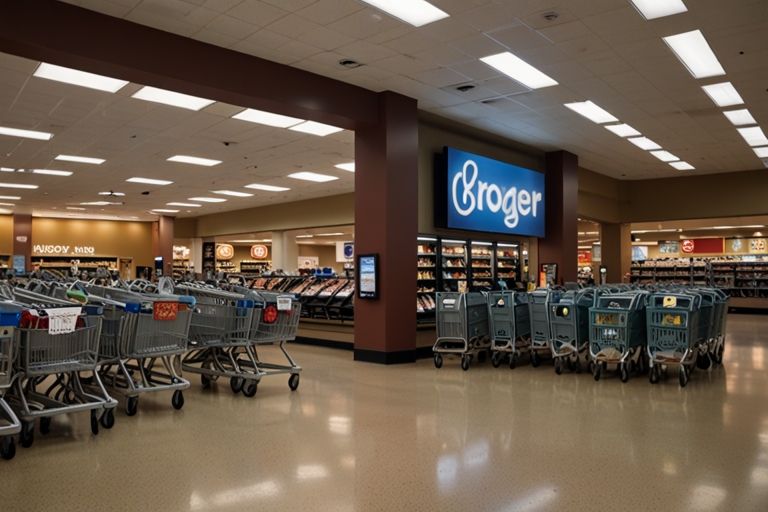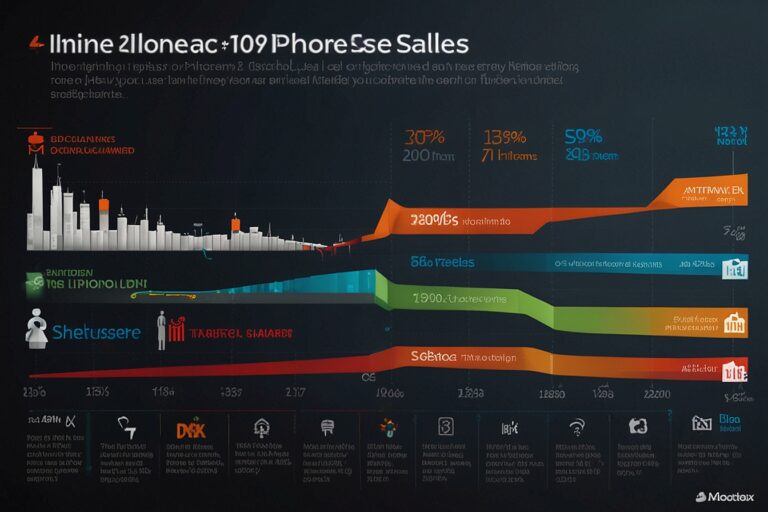
TL;DR
- Kroger will close ~60 stores over the next 18 months, accounting for 5% of its footprint.
- The closures follow the collapsed merger with Albertsons and a $100 million impairment charge.
- Kroger says affected employees will be offered relocation, while savings will be reinvested in store improvements.
- The grocery chain’s private label sales are outperforming national brands, supporting its revised sales forecast.
- Interim CEO Ron Sargent says the closures reflect underperformance and a postponed store review during the merger talks.
Kroger Announces Major Store Closures Post-Merger Collapse
Kroger, one of the largest supermarket chains in the U.S., plans to close approximately 60 grocery stores — or about 5% of its total retail footprint — over the next 18 months, as part of a strategic shift following the collapse of its proposed $24.6 billion merger with Albertsons.
The company disclosed the move in its latest earnings release, citing the closures as part of a broader plan to optimize operations and reduce exposure to underperforming markets. It also reported a $100 million impairment charge related to the closures, but emphasized that the long-term financial impact would be “modestly beneficial.”
While specific store locations have not been disclosed, Kroger emphasized that all affected workers would be offered roles at nearby stores, reflecting a commitment to preserving jobs amid the downsizing effort.
Why the Closures Now?
The timing of the closures appears closely linked to the failed Kroger-Albertsons merger, which would have created a grocery giant spanning over 4,500 stores. The merger faced strong regulatory resistance, and following its collapse earlier this year, the two companies became embroiled in legal disputes over antitrust concerns.
According to interim CEO Ron Sargent, the store review process that usually informs annual closures and expansions was put on hold during merger talks.
“Not all of our stores are delivering the sustainable results we need,” Sargent said on the earnings call. “We are now moving forward with portfolio decisions that were previously paused.”
Kroger Retail & Financial Position
| Metric / Event | Value / Detail | Source |
| Number of Stores Being Closed | ~60 (5% of footprint) | CNN |
| Total Number of Kroger Locations | ~1,200 in 16 U.S. states | Kroger |
| Impairment Charge Due to Closures | $100 million | Investor Report |
| Growth in Private Label Sales | 7 quarters outperforming name brands | Earnings Call Transcript |
| Interim CEO | Ron Sargent | Kroger Leadership |
Focus Shifts to Profitability and Private Labels
Despite the downsizing, Kroger is projecting a stronger sales outlook for the year. The company said it has benefited from Americans cutting back on dining out, with more consumers opting to cook meals at home amid inflationary pressures.
Sales have also been lifted by price reductions on 2,000 items and an intensified promotional push around Kroger’s private label brands, which are consistently outpacing national competitors.
Sargent noted that private label products have seen seven straight quarters of faster sales growth than name-brand products. He also confirmed that Kroger plans to introduce 80 new protein-rich items to meet rising consumer demand for nutrient-dense food options.
“We’re seeing shoppers become more value-driven,” said Sargent. “Private label is where that value is most visible.”
Operational Impact and Strategic Use of Funds
While store closures often signal trouble, Kroger has framed this move as a targeted optimization of its portfolio. The closures are focused on stores that no longer meet financial targets, and the decision is positioned as a return to disciplined annual evaluations post-merger.
The company stated that savings from the closures will be redirected into improving customer experience, including investments in digital infrastructure, in-store merchandising, and new product lines.
Affected employees will be redeployed to other nearby stores, a move Kroger says will help maintain workforce continuity and avoid widespread layoffs.
Leadership Transition Amid Strategic Shifts
This announcement also comes as Kroger undergoes a leadership transition. In March 2025, Rodney McMullen, the company’s long-time CEO, resigned following an internal investigation into personal conduct. Ron Sargent, a seasoned retail executive and former Staples CEO, was named interim CEO shortly thereafter.
Sargent’s tenure thus far has focused on stabilizing operations, navigating legal fallout from the merger collapse, and resetting strategic priorities — including the store closure initiative.
“This marks the beginning of a more disciplined, performance-based future for Kroger,” said Sargent.
Market Reaction and Financial Outlook
Following the announcement, Kroger’s shares (KR) surged nearly 10% on Friday, reflecting investor optimism about the chain’s leaner, more profitable operating structure. Analysts say the closures, while unfortunate for local communities, signal fiscal discipline that could support Kroger’s valuation in a competitive retail environment.
The chain’s decision to double down on its core strengths—price, private label, and in-store experience—appears aligned with shifting consumer trends in post-pandemic retail behavior.




